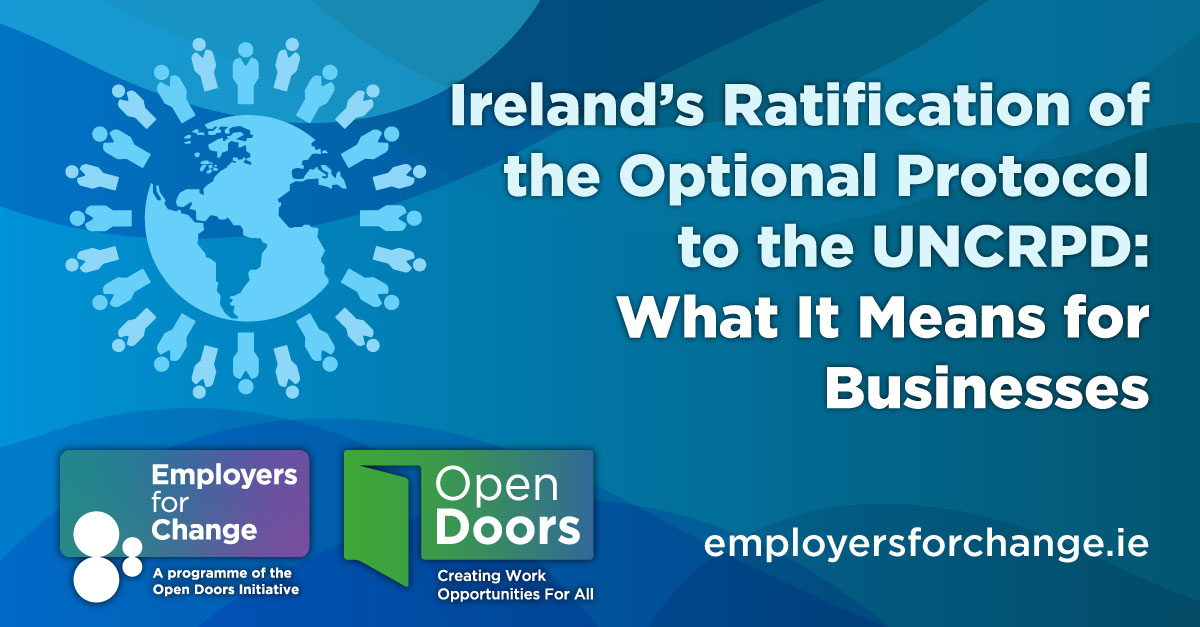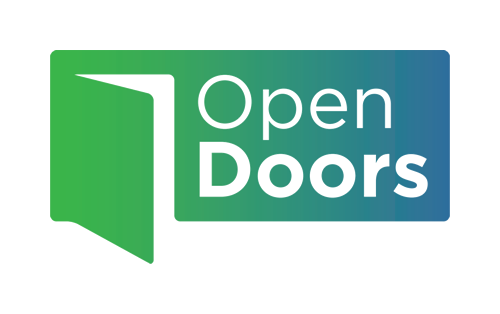
In a major milestone for disability rights, Ireland, Minister Roderic O'Gorman announced the acceptance of the Irish government to ratify the Optional Protocol to the United Nations Convention on the Rights of Persons with Disabilities (UNCRPD). This decision has significant positive implications not only for individuals with disabilities but also for businesses across the country. Understanding what this ratification means is crucial for companies striving to create inclusive workplaces and those looking to stay ahead of regulatory expectations.
Official source: Press release
What is the Optional Protocol to the UNCRPD?
The Optional Protocol is an additional legal mechanism attached to the UNCRPD, a landmark international treaty that promotes and protects the rights of people with disabilities. Ireland ratified the core UNCRPD in 2018, upholding these rights in areas like accessibility, education, employment, and independent living.
The Optional Protocol, however, goes a step further by giving individuals or groups the right to bring complaints to the UN Committee on the Rights of Persons with Disabilities if they believe their rights have been violated under the Convention and have exhausted all available legal remedies at the national level. This international recourse strengthens the enforcement of rights and offers an additional layer of accountability for both governments and businesses.
What Does This Mean for Businesses?
Ireland’s ratification of the Optional Protocol presents several challenges and opportunities for businesses across all sectors. Here’s what it means in practice:
1. Enforcement of Disability Rights
The Optional Protocol now in place requires Irish businesses to ensure their Diversity, Equity, and Inclusion (DE&I) and employment strategies fully comply with disability rights laws. The UNCRPD mandates that individuals with disabilities enjoy the same rights and opportunities as others in all aspects of life, including employment. This means businesses must ensure their policies, practices, and premises meet disability standards, just as they would for any other employee, to foster a productive workplace.
Failure to comply with these standards could not only lead to national legal challenges but, if unresolved, could escalate to the UN Committee under the Optional Protocol. This creates a powerful incentive for businesses to take disability rights seriously and implement compliance strategies. These benefit all employees as 70% of disabilities in Ireland are acquired during their working life (adult working age). This potentially affects us all, either as a disabled person or as a relative or a friend.
2. Enhanced Accountability and Potential Litigation
The Optional Protocol gives disabled individuals an additional avenue to seek redress if they feel their rights under the Convention are being violated. For businesses, this means greater accountability. For example, if an employee or job candidate feels that they have been discriminated against based on their disability in the recruitment process or any stage of their employment journey, and if domestic legal avenues do not provide adequate redress, the case can be escalated to an international forum.
3. Creating Inclusive Workplaces:
While the Optional Protocol presents additional responsibilities, it also opens opportunities for businesses to be at the forefront of disability inclusion. Inclusive workplaces are not only a legal imperative but also make good business sense.
- Diverse Talent Pool: By actively recruiting and retaining employees with disabilities, businesses can tap into a wide and underutilised talent pool. Studies have shown that companies that embrace diversity and inclusion tend to be more innovative and adaptable.
- Improved Employee Engagement: Employees value workplaces that prioritise inclusion and diversity. By fostering a culture that supports people with disabilities, companies can boost employee morale, reduce turnover, and enhance productivity.
- Enhanced Brand Reputation: Consumers increasingly prefer to support businesses that align with their values. By embracing disability rights and inclusion, businesses can improve their corporate social responsibility (CSR) profile and attract more customers who value ethical practices.
4. Practical Steps for Businesses Post-Ratification
To ensure compliance and take advantage of the benefits of inclusion, businesses in Ireland should consider the following steps considering the Optional Protocol’s ratification:
- Review and Update Policies: Ensure that workplace policies on recruitment, retention, and accommodation are in line with both the UNCRPD and national laws. Review and update these policies regularly to reflect best practices in disability inclusion.
- Accessibility Audits: Conduct an audit of your physical and digital environments to identify and eliminate barriers for employees and customers with disabilities. Ensure that facilities are fully accessible and that online platforms adhere to accessibility standards.
- Provide Disability Awareness Training: Equip staff at all levels with training on disability rights and inclusion. This will help foster a workplace culture that supports employees with disabilities and ensures that all staff understand their responsibilities. Employers for Change, a programme of the Open Doors Initiative, can help in this aspect as we provide free training as part of the government initiative to create awareness about disability in the workplace.
- Engage with Disabled Employees: Collaborate with employees with disabilities to identify areas for improvement in the workplace. Their lived experience is invaluable in shaping policies that meet real-world needs.
- Prepare for Potential Complaints: Be proactive in resolving issues before they escalate. Establish clear procedures for handling complaints related to disability rights and ensure that your legal team is prepared to handle cases in line with international standards.
Now is the time for Irish businesses to step up and heightened responsibility to ensure compliance with disability rights laws and the creation of truly inclusive workplaces. While there are challenges, there are also opportunities to lead in diversity and inclusion, enhancing both the company's reputation and its bottom line.
Contact
For more information or to request a free training for your organisation, contact Employers for Change at info@employersforchange.ie
Employers for Change is an employer disability information service and a program of the Open Doors Initiative, funded by the Department of Children, Equality, Disability, Integration and Youth. The service empowers employers with all the information and advice needed to hire, employ, manage and retain staff with disabilities.

